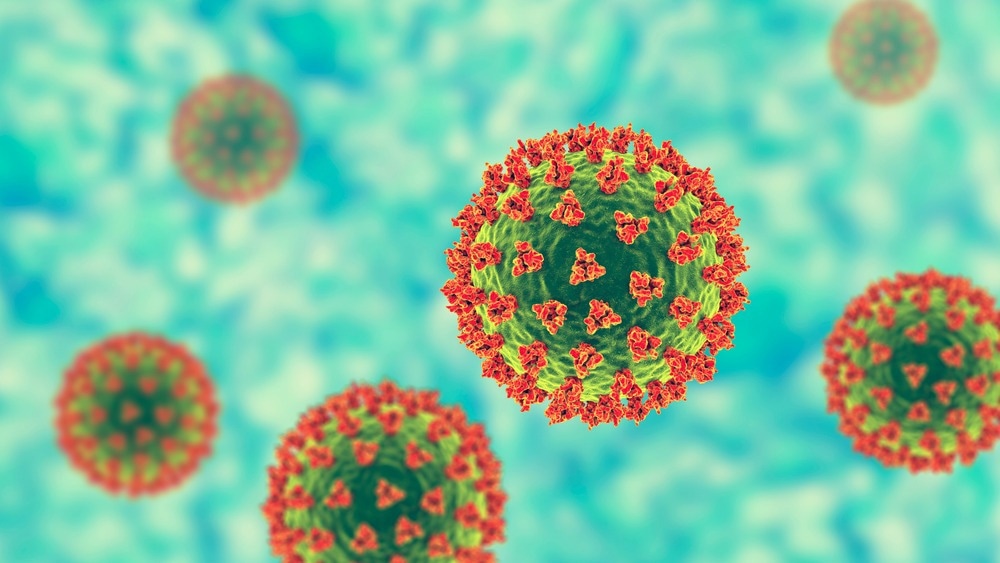In a recent study posted to the bioRxiv* preprint server, researchers characterized immunological responses by pulmonary mucosal tissues post-coronavirus disease 2019 (COVID-19) vaccination and/or severe acute respiratory syndrome coronavirus 2 (SARS-CoV-2) infection, to assess the impact of hybrid immune protection on the durability of mucosal immunological responses.
 Study: Long-term respiratory mucosal immune memory to SARS-CoV-2 after infection and vaccination. Image Credit: Kateryna Kon/Shutterstock
Study: Long-term respiratory mucosal immune memory to SARS-CoV-2 after infection and vaccination. Image Credit: Kateryna Kon/Shutterstock

 *Important notice: bioRxiv publishes preliminary scientific reports that are not peer-reviewed and, therefore, should not be regarded as conclusive, guide clinical practice/health-related behavior, or treated as established information.
*Important notice: bioRxiv publishes preliminary scientific reports that are not peer-reviewed and, therefore, should not be regarded as conclusive, guide clinical practice/health-related behavior, or treated as established information.
Background
Previous studies have reported that COVID-19 vaccine-induced respiratory mucosal immune responses are essential for immunological protection against SARS-CoV-2. Serological anti-SARS-CoV-2 responses have been studied extensively among humans; however, the potential of peripheral COVID-19 vaccines in generating persistent cellular and humoral immunity in pulmonary mucosal tissues and the effects of prior COVID-19 history on peripheral immune responses is not known.
Improved knowledge of the longevity and breadth of adaptive immunological responses against SARS-CoV-2 in the human airways could enable utilizing mucosal immune responses in developing next-generation COVID-19 vaccines, which may prevent SARS-CoV-2 transmission and reduce COVID-19 case counts. The authors of the present study previously reported on the presence of cross-protective T lymphocytes in the human airways.
About the study
In the present study, researchers assessed the potential of peripheral COVID-19 vaccinations to elicit anti-SARS-CoV-2 immunological memory in human pulmonary mucosal tissues and investigated whether prior COVID-19 history influenced the immune outcomes.
BAL (bronchoalveolar lavage) fluid samples and matched serum samples were obtained from seven COVID-19 vaccine recipients without any prior COVID-29 history and 15 COVID-19 vaccinees infected with SARS-CoV-2 between two months and 11.0 months before COVID-19 vaccination. In addition, samples were obtained from 11 pre-pandemic control individuals with neither history of COVID-19 nor previous COVID-19 vaccination.
The team assessed to evaluate the presence of mucosal and peripheral antibodies and anti-SARS-CoV-2 T lymphocytes and B lymphocyte responses. Immunoglobulin A (IgA) and IgG titers of mucosal and circulating antibodies against the SARS-CoV-2 S (spike) protein, against the RBD (receptor-binding domain), and the N (nucleocapsid) protein were determined. To detect anti-SARS-CoV-2 MBCs (memory B cells), fluorescently labeled spike, N, and RBD proteins were used for assaying peripheral blood mononuclear cells (PMBCs) and pulmonary leukocytes.
Results
The team observed humoral and cell-mediated immunity with enriched anti-spike protein titers, class-switched memory B lymphocytes, and T lymphocytes in pulmonary mucosal tissues than the peripheral titers in the background of hybrid immune responses. On the contrary, concerning COVID-19 vaccinations only, local-level anti-SARS-CoV-2 immune responses were restricted to humoral responses. Anti-S T lymphocytes were persistent in pulmonary mucosal tissues for ≤5.0 months after COVID-19 vaccination, and cross-reactive T lymphocyte responses were observed for ≥11 months post-SARS-CoV-2 infection.
In addition, a greater abundance of the cluster of differentiation 4+ (CD4+) and CD8+ T lymphocytes against SARS-CoV-2 were observed among SARS-CoV-2-exposed individuals than control individuals. Anti-nucleocapsid immunoglobulin G (IgG) titers were below/near the limit of sensitivity (LOS) among SARS-CoV-2 naïve COVID-29 vaccinees, whereas among SARS-CoV-2-infected individuals, the titers were detectable among serological samples of all 15 individuals, and among BAL samples of seven (47.0%) of individuals.
COVID-19 vaccinations induced robust systemic immunoglobulin G titers against spike protein and RBD, with three-fold greater titers among the infected and vaccinated individuals, in comparison to the SARS-CoV-2-naïve vaccinees.
Pulmonary anti-spike and anti-receptor-binding domain immunoglobulin G titers were eight-fold and nine-fold greater among individuals with hybrid immunity compared to the SARS-CoV-2-naïve vaccinees, respectively. Compared to control individuals, SARS-CoV-2-infected COVID-19 vaccinees showed three-fold higher mucosal IgA titers against the spike protein and higher greater IgA titers against SARS-CoV-2 RBD. Vaccination-elicited humoral responses in BAL and sera against SARS-CoV-2 S showed strong correlations for immunoglobulin G and lesser for immunoglobulin A.
Only COVID-19 vaccine recipients priorly exposed to SARS-CoV-2 N by infection showed detectable serological anti-N MBCs. The frequencies of MBCs against the spike protein, nucleocapsid protein, and receptor-binding domain were higher in pulmonary mucosal tissues of priorly infected COVID-19 vaccinees in comparison to pre-COVID-19 pandemic control individuals (median values of 6.0% versus 0.1% for the spike, 3.0% versus 0.1% for S RBD and 2.0% versus 0.2% for the N protein.
Paired sample comparisons of counts of mucosal and circulating anti-SARS-CoV-2anti-SARS-CoV-2 MBCs among infected vaccinees showed enriched anti-spike and anti-RBD memory B lymphocytes in the pulmonary mucosal tissues. Median counts of anti-spike and anti-S RBD memory B lymphocytes were two-fold and four-fold greater in BAL fluid samples than PMBCs. Additionally, the anti-SARS-CoV-2 CD4+ T lymphocytes and CD8+ T lymphocytes were greater in the lower airways compared to the peripheral vaccinations.
Conclusion
The study findings showed that durable pulmonary mucosal immune responses against SARS-CoV-2 could be observed post-hybrid immunity development and cannot be induced by peripheral COVID-19 vaccinations only. Long-term, airway-compartmentalized B lymphocyte and T lymphocyte pulmonary reservoirs might confer enhanced identification of SARS-CoV-2 Omicron subvariants and future variants to prevent COVID-19 severity outcomes. Therefore, the findings underscored the development of COVID-19 vaccines targeting human airways.

 *Important notice: bioRxiv publishes preliminary scientific reports that are not peer-reviewed and, therefore, should not be regarded as conclusive, guide clinical practice/health-related behavior, or treated as established information.
*Important notice: bioRxiv publishes preliminary scientific reports that are not peer-reviewed and, therefore, should not be regarded as conclusive, guide clinical practice/health-related behavior, or treated as established information.